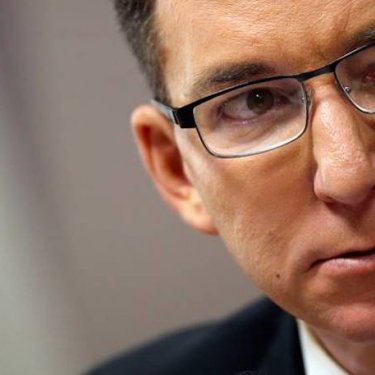Brésil : Lettre ouverte aux autorités au sujet des accusations contre le journaliste Glenn Greenwald

Une coalition d'une quarantaine d'organisations de défense des droits humains et de la liberté d'expression, dont Reporters sans frontières (RSF), signent une lettre ouverte adressée aux autorités (Présidence de la République, Assemblée nationale, Sénat et Cour suprême) condamnant les accusations du parquet fédéral brésilien contre le journaliste d'investigation américain Glenn Greenwald. Les charges doivent encore être examinées par un juge fédéral, qui aura la possibilité de les rejeter et de préserver ainsi la liberté de la presse dans le pays. Inquiètes de l'utilisation de telles menaces judiciaires pour dissuader d'autres journalistes, les organisations dénoncent fermement ces pratiques intimidantes.
January 24, 2020
Addressed to:
Presidente da República, Jair Bolsonaro
Presidente da Câmara dos Deputados, Rodrigo F. Maia
Presidente do Senado, David Alcolumbre
Presidente do Supremo Tribunal Federal, Dias Toffoli
Cc:
Procurador Geral da República, Augusto Aras
Corregedora Geral do MPF, Elizeta Maria de Paiva Ramos
Procuradora Federal dos Direitos dos Cidadãos, Deborah Duprat
We, the undersigned press freedom and civil liberties organizations, emphatically condemn the Brazilian authorities’ criminal charges against the award-winning investigative journalist Glenn Greenwald.
These charges represent a straightforward attempt to intimidate and retaliate against Greenwald and The Intercept for their critical reporting on messages that appeared to show a judge advising federal prosecutors how to prosecute cases he was presiding over in the “Operation Car Wash” investigation. Further, by charging Greenwald with a cybercrime the government has essentially criminalized engaging in legitimate journalistic practices, which threatens to have a chilling effect on journalists and sources alike.
The recently disclosed charges are only the most recent development in a campaign of harassment against journalists covering the scandal. Threats against them have been documented since last June, when The Intercept began publishing a series of important public interest stories based on a cache of leaked Telegram messages between public officials.
A coalition of 29 free speech and human rights organizations penned a letter in July 2019 to denounce these threats.1 Then, as now, the implications affect not just Greenwald and his colleagues, but the broader free press in Brazil, including both domestic and international media.
The attacks on Greenwald and The Intercept have included specific death threats, public disinformation, and a criminal prosecution. Notably, in August 2019, in a remarkable opinion by a member of Brazil’s highest court ordered any police investigation into Greenwald halted and condemned any such efforts as “an unambiguous act of censorship” in violation of the country’s constitution.
The right of journalists to report on primary source materials documenting official malfeasance is a critically important press freedom issue. The Federal Prosecutor’s Office has abused its power by charging Greenwald for doing just that — despite a federal police conclusion just last month that there was no evidence that Greenwald committed any crime in relation to the leaked messages.
Given the Supreme Court injunction and that federal police conclusion, the Federal Prosecutor’s Office’s position that Greenwald conspired to commit a crime with his anonymous source is unjustifiable.
These charges await approval from a federal judge, giving the courts the opportunity to reject them and protect freedom of the press. Even so, the chilling effect of such legal intimidation remains. If these tactics are allowed to stand, it would jeopardize all Brazilians’ freedom of speech, freedom of the press, and freedom to participate in democracy.
Sincerely,
Freedom of the Press Foundation*
Reporters Without Borders Access Now Agência Pública
American Civil Liberties Union
ARTICLE 19 Brazil and South America
Asociación por los Derechos Civiles
Association for Progressive Communications (APC)
Brave New Films
Brazilian Association of Investigative Journalism (Abraji)
CODEPINK
Columbia Journalism Review
Committee to Protect Journalists
Cooperativa Tierra Común
Demand Progress
Derechos Digitales
Doc Society
Electronic Frontier Foundation (EFF)
ExposeFacts
Fundación Acceso (Costa Rica)
Fundación Ciudadania Inteligente
Fundación Datos Protegidos (Chile)
Fundación Karisma
Fundación Huaira (Ecuador)
Fundación Vía Libre
Human Rights Watch
IFEX
IFEX-ALC
IPANDETEC Centroamérica
Instituto Vladimir Herzog
International Press Institute
Intervozes
National Federation of Brazilian Journalists (FENAJ)
Newscoop Pen International
Observatório da Imprensa
Reporters Committee for Freedom of the Press
Roots Action Sursiendo CCD TEDIC
Ubunteam Community
Usuarios Digitales
World Association of News Publishers
Witness


